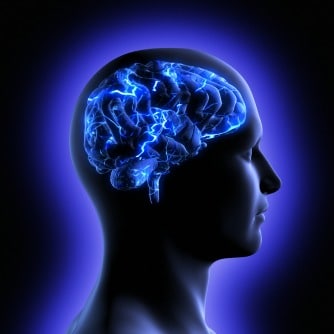The decline of memory skills in most people is reluctantly viewed as a natural part of aging, but some people age much more slowly than others. With normal aging, shrinkage of key parts of the brain brings a steady downward decline in a person’s cognitive abilities. However, recent research on slower aging adults is showing that parts of the brain associated with memory have performance capacity that is equal or better than people 30 years younger. This is called super-aging by scientists who studied the brain attention, execution, and memory retrieval tasks in older subjects aged 70 to 80 years of age. They found regions of the brain in super-agers, especially the cerebral cortex, was thicker than other groups of older adults, and physically indistinguishable from the brains of 20 to 30-year-olds. Super-agers also had a preserved volume of the hippocampus area of the brain known for long-term memory storage. Amazingly, these so-called super-agers performed almost equal to younger adults in memory test trials.
Almost Half of Aging Adults Preserve Cognitive Abilities
The research was published in The Journal of Neuroscience which dubbed the phrase “super agers” for older people who retained normal mental abilities. Co-authors of the report Bradford Dickerson and Lisa Barrett investigated the differences in super-agers and normal aging adults. The test program enrolled 80 people. They were divided into two groups:
• 40 adults who were 70-80 years of age
• 40 adults who were 18-35 years of age
After memory tests, almost half (17) of the older adults performed just as well as the younger ones. Co-author Alexandra Touroutoglou, mentioned that previous research in this field focused only on comparing the elderly over 85, to that of middle-aged people. She says this study is exciting, because the investigation was focused on finding only those older adults who had memory abilities equal to young adults.
Super Agers have Thicker Brain Regions
Touroutoglou and her colleagues conducted brain scans of these super agers, and the images revealed surprising results. The brain areas studied were the hippocampus and prefrontal cortex, both prone to shrinkage as we age. They explained how these two areas of the brain are important for learning and remembering information. When comparing these brain areas of super-agers to their same age counterparts, they were thicker and in some cases comparable in size to younger brains.
The team also examined regions of the brain called the salience network, which helps to determine what information is important when engaged in data encoding and retrieval. What they found in super agers, is their salience network was more robust in the brain regions of the orbitofrontal cortex, and anterior insula. Other studies have shown the salience network to be a significant region that allows multiple networks to communicate with each other. Healthy brain aging is associated with efficient communication between all these networks.
Future Research Aimed at Prevention & Treatment
Interestingly, the study found that education levels were not a leading factor in mental performance. The study did not resolve the question of whether super agers performed better at mental tests in their youth, and future studies will be necessary to estimate the prevalence of super-agers in the general population. More research is expected to focus on the practical things everyday people can do to preserve cognitive functions. The factors known to play a role in youthful memory include diet, exercise, sleep, and social activities.
Memory performance will inevitably decline as we age, yet some of us will maintain our youthful memory. Dickerson says they are desperately trying to understand how some older adults can cognitively function into their 70s, 80s, and 90s. This study could provide the clues to advancing the research in the prevention and treatment of old-age related brain impairment like memory loss, and even dementia.




